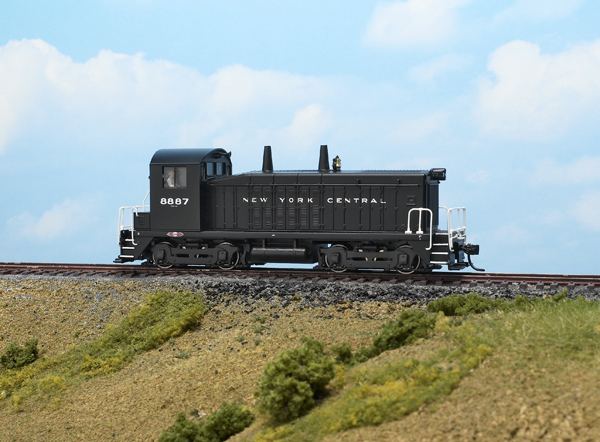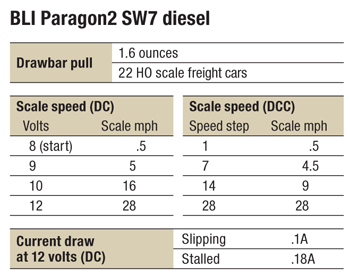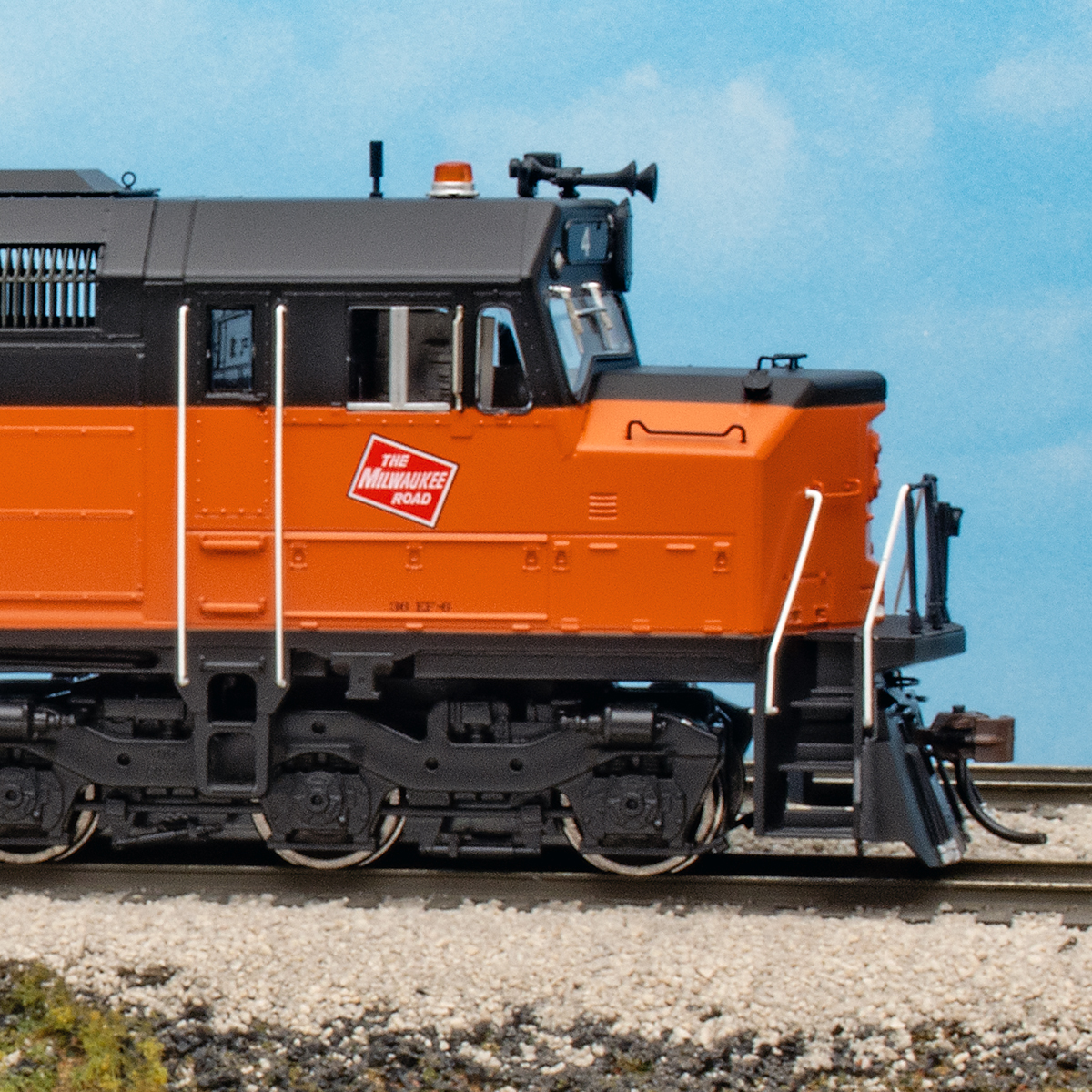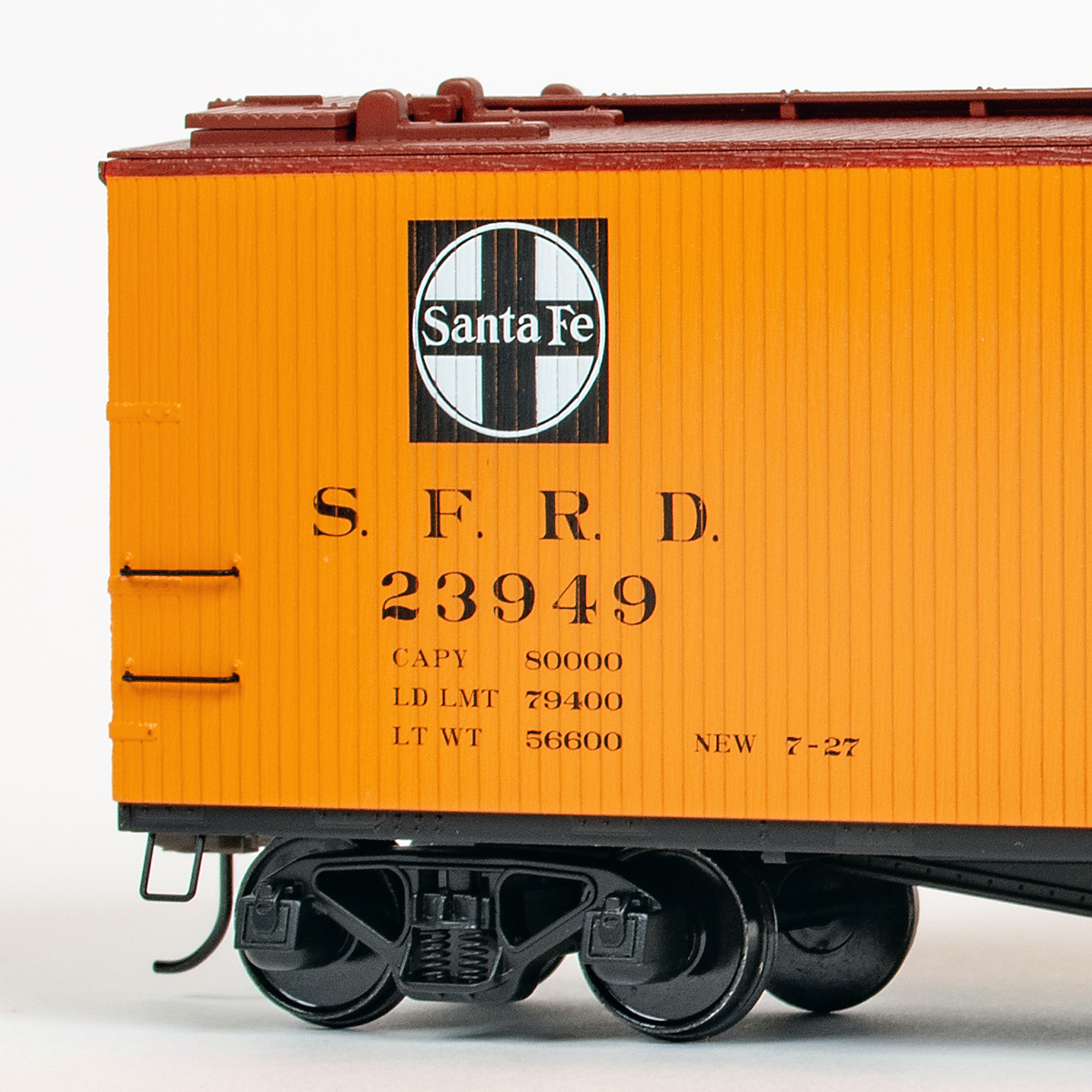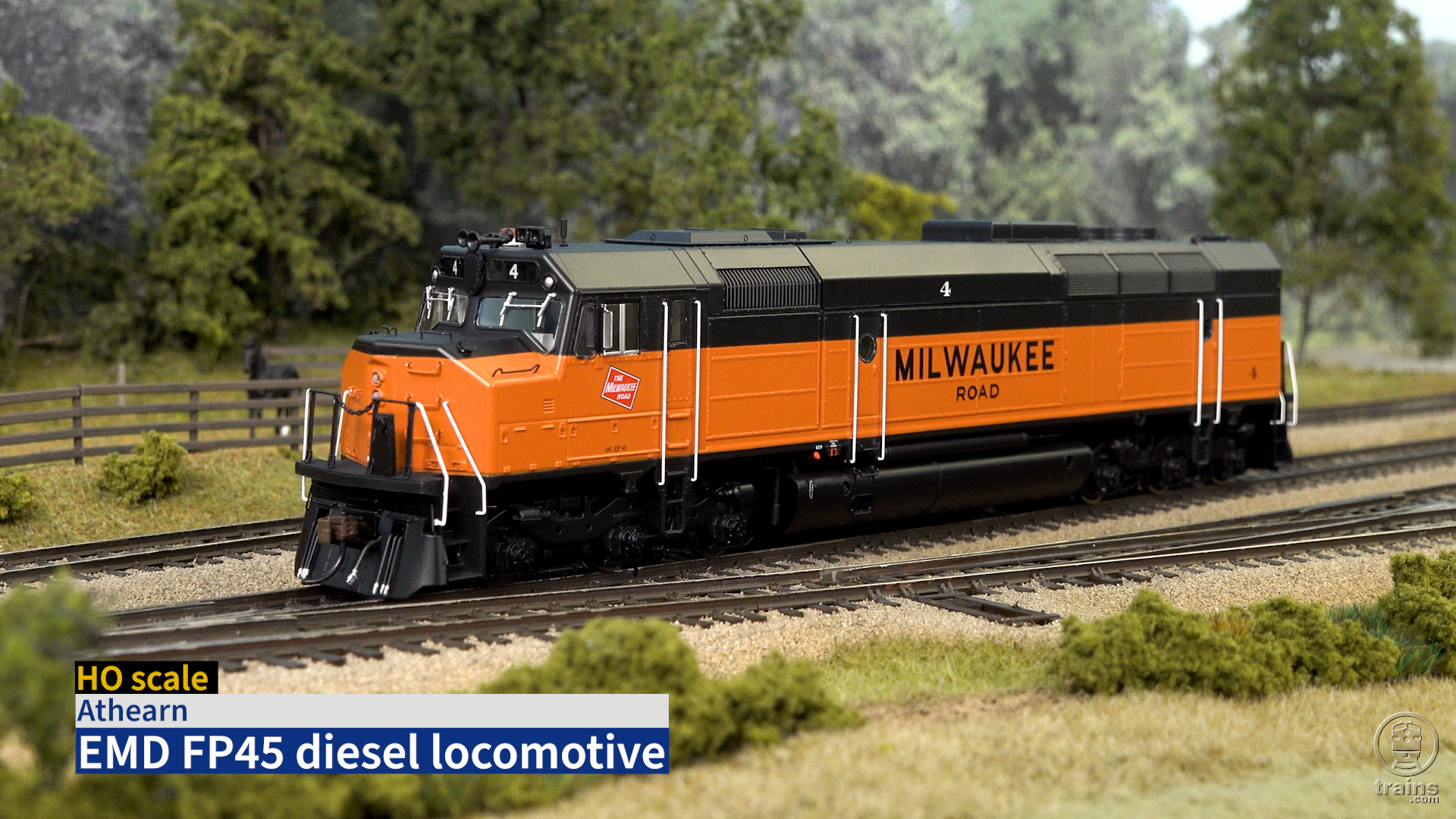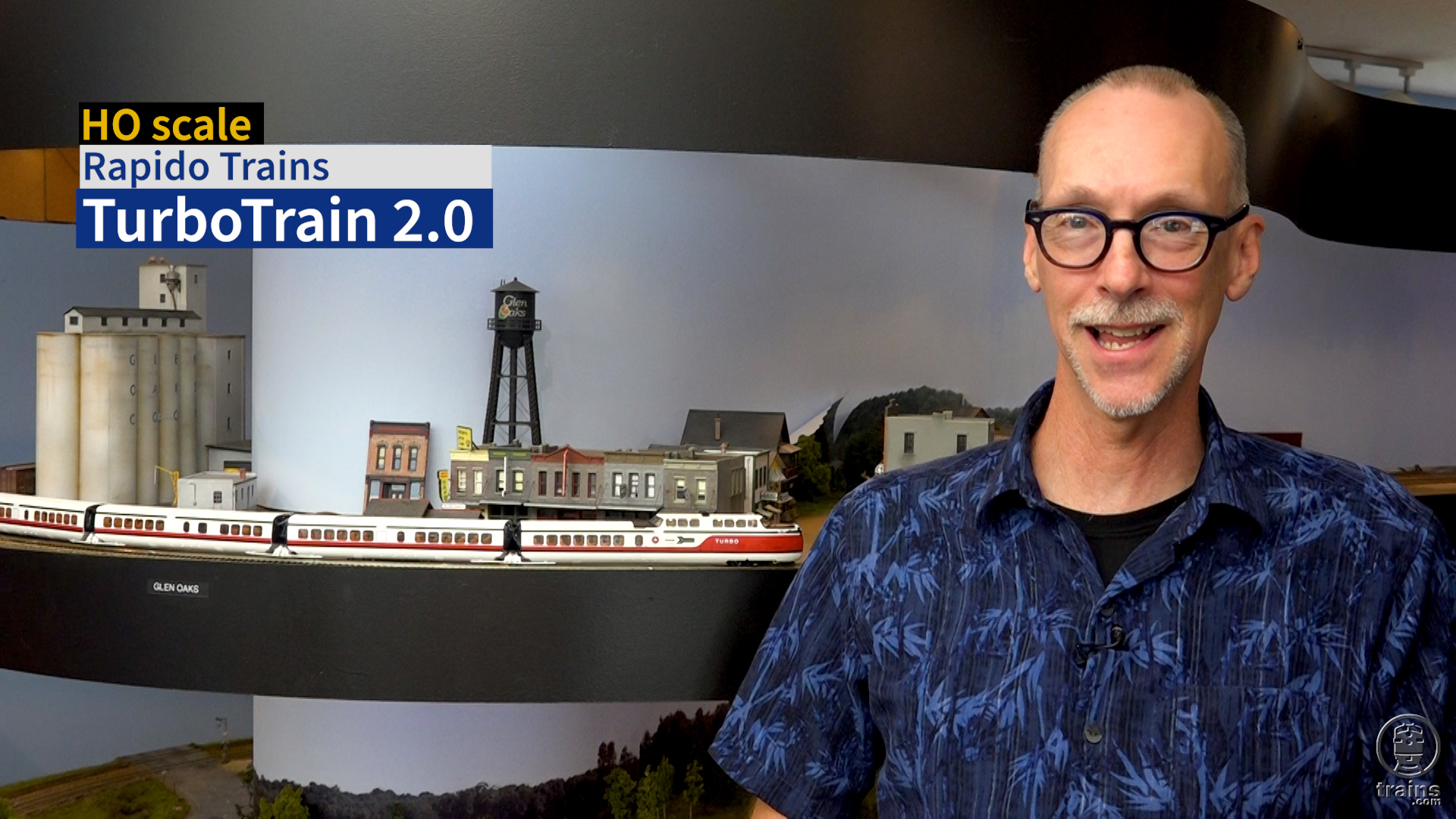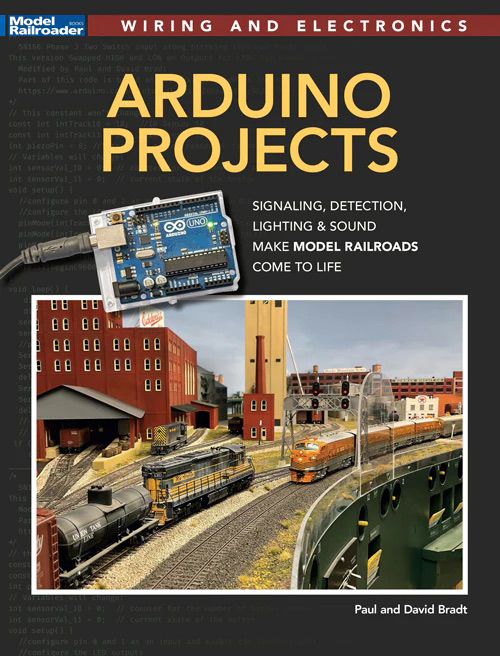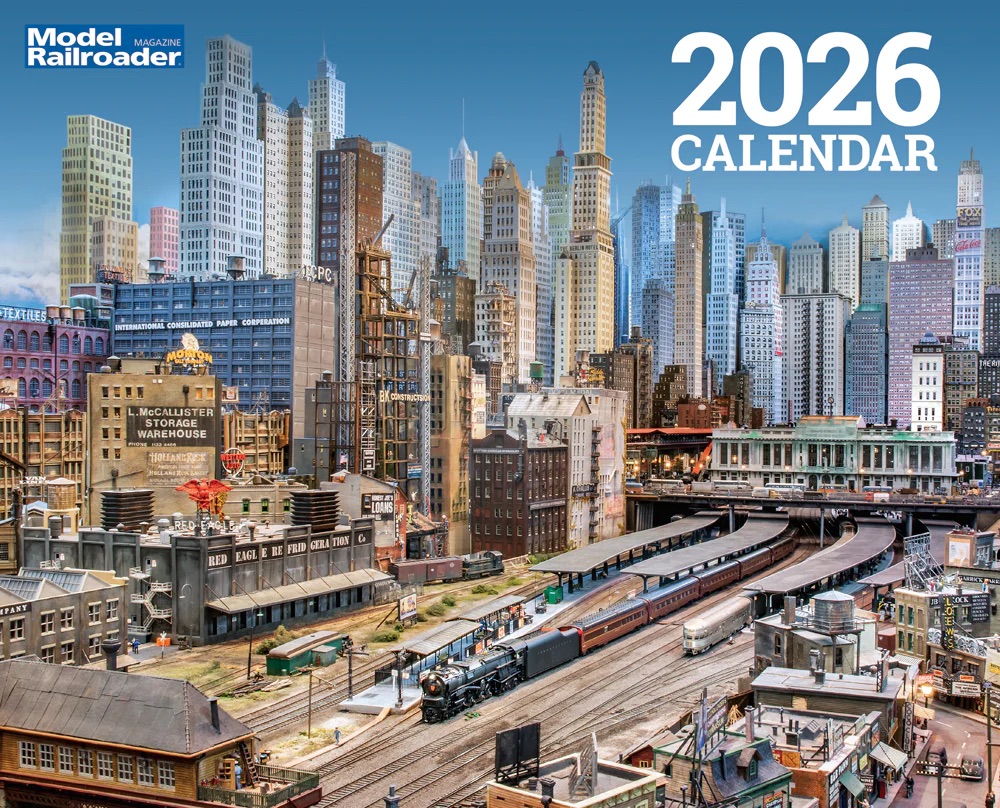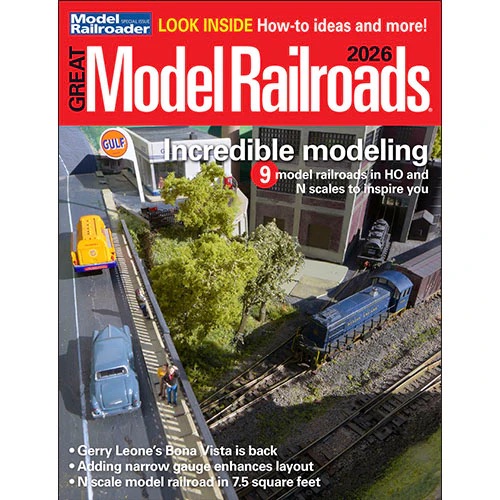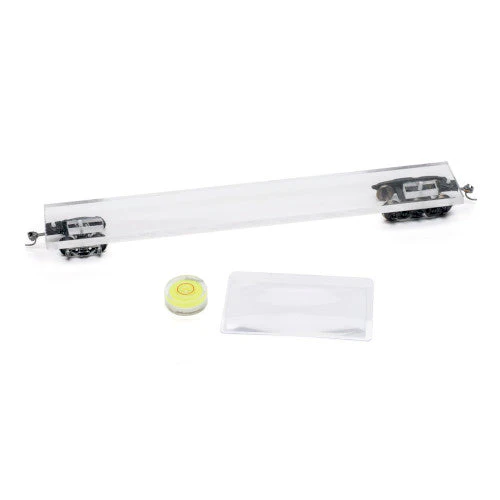Prototype. Built by General Motors Electro-Motive Division from October 1949 to January 1951 SW7 switchers look almost identical to late production NW2 1,000-hp switchers. Unlike the NW2, the SW7 had a full-height radiator opening on the front of the hood and a 1,200 hp 567A engine.
Beginning in 1950, EMD built SW7s with smaller rectangular front cab windows instead of the large arched windows on NW2s and early-production SW7s. Rail-fans refer to these late-production SW7s as Phase II.
All the major dimensions of our review sample match builder’s drawings in the 1950 – 1952 Locomotive Cyclopedia of American Practice (Simmons-Boardman).
Enhanced sound and operation. The sound quality of the SW7 is excellent. I tested the model in DCC using an NCE Corp. Powercab.
The single-chime horn sounds like that of a prototype SW7. I especially liked that you can trigger both short and long horn blasts depending upon how long you hold down the Function 2 key, instead of having to use different keys for different durations.
The model accurately reproduces the sound of a 567 diesel engine, with seven different rpm levels. These levels are adjusted automatically depending on the model’s speed and the load placed on its motor. For example, hauling a heavy train or going up a hill will cause the rpms to increase. You can also control the rpms independently using function 5 to increase them and function 6 to decrease.
I found other sound effects less useful, such as the industrial, lumber yard, farm, and city background effects. There are also some user-triggered radio announcements from the engineer and the dispatcher, which may not fit the era you’re modeling.
Like other Paragon2-equipped models, the BLI SW7 can record and play back operating sequences. You could have an SW7 running on autopilot while you control a different engine.
I easily programmed the address, acceleration, and deceleration on the main, as well as on a programming track. The model has many programmable configuration variables (CVs), including those that let you adjust the volume of individual sounds. These CVs are listed in the instruction booklet, and an extensive technical manual is available free on the BLI Web site.
For DC layouts, you’ll need a BLI DC Master Analog Control Module (sold separately for $39.99) to trigger the whistle and bell or program CVs. The model runs fine without the module, but you’ll only have access to the diesel exhaust, squealing brakes, and other automatic sound effects.
According to the Cyclopedia, an SW7 could be geared for a top speed of 65 mph. However, the Paragon2 model’s 28 scale mph top speed should be fast enough for most switching or transfer duties on a model railroad.
Appearance. The placement of molded details on the model matches photos of the prototype. All the separately applied handrails, hand grabs, and uncoupling levers are painted white, but according to color prototype photos and a 1947 NYC painting diagram, these parts should all be yellow.
The cab interior includes a painted engineer figure, but no fireman. Running a locomotive with a single crew member would be very unusual on a Class I railroad during the prototype’s era.
The BLI SW7 was already a good model. The Paragon2 version’s upgraded sounds and added features have made it even more fun to operate.
Price: $199.99
Manufacturer
Broadway Limited Imports
9 East Tower Circle
Ormond Beach, FL 32174
www.broadway-limited.com
Road names: (two numbers each): New York Central, Illinois Central, Nickel Plate Road, Pennsylvania, Texas & Pacific, Union Pacific. Undecorated version also available
Era: 1951 to early ’90s
Features
All-wheel drive and electrical pickup
Blackened RP-25 contour metal wheels in gauge
Dual-mode Paragon2 sound decoder with single speaker operates on DC and DCC layouts
Five-pole skew-wound can motor with dual flywheels
Minimum radius: 18″
Operating magnetic knuckle couplers at correct height
Weight: 9 ounces





